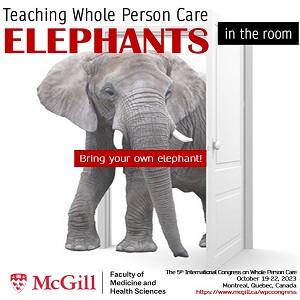Consistency in diagnostic suggestions does not influence the tendency to accept them
DOI:
https://doi.org/10.36834/cmej.36594Keywords:
clinical reasoning, diagnostic error, confirmation biasAbstract
Background: Studies suggest that residents tend to accept diagnostic suggestions, which could lead to diagnostic errors if the suggestion is incorrect. Those studies did not take into account that physicians in clinical practice will mainly encounter correct suggestions. The present study investigated residents’ diagnostic performance if they would first encounter a number of correct suggestions followed by a number of incorrect suggestions, and vice versa. It was hypothesized that more incorrect suggestions would be accepted if participants had first evaluated a series of correct suggestions.
Method: Residents (n = 38) evaluated suggested diagnoses on eight written clinical cases. Half of the participants first evaluated four correct suggestions and then evaluated four incorrect suggestions (C/I-condition). The other half started with the four incorrect suggestions followed by the correct suggestions (I/C-condition).
Results: Our findings show that the evaluation score in the C/I condition (M = 2.87, MSE = 0.14) equaled that in the I/C condition (M = 2.66, MSE = 0.14), F(1,36) = 1.09, p = 0.30, ns, meaning that consistency in preceding suggested diagnoses did not influence the tendency to accept subsequent diagnostic suggestions. There was, however, a significant interaction effect between case order and phase, F(1,36) = 11.82, p = 0.001, ηp2 = 0.25, demonstrating that the score on cases with correct suggestions was higher than the score on cases with incorrect suggestions.
Conclusion: These findings indicate that consistency in preceding correct or incorrect diagnostic suggestions did not influence the tendency to accept or reject subsequent suggestions. However, overall residents still showed a tendency to accept diagnostic suggestions, which may lead to diagnostic errors if the suggestion is incorrect.
Metrics
Downloads
Published
How to Cite
Issue
Section
License
Submission of an original manuscript to the Canadian Medical Education Journal will be taken to mean that it represents original work not previously published, that it is not being considered elsewhere for publication. If accepted for publication, it will be published online and it will not be published elsewhere in the same form, for commercial purposes, in any language, without the consent of the publisher.
Authors who publish in the Canadian Medical Education Journal agree to release their articles under the Creative Commons Attribution-Noncommercial-No Derivative Works 4.0 Canada Licence. This licence allows anyone to copy and distribute the article for non-commercial purposes provided that appropriate attribution is given. For details of the rights an author grants users of their work, please see the licence summary and the full licence.











